The Four Protocols of the Peaceful Sovereign Social Movement: Part I
Bitcoin, Lightning, Nostr, and Ordinals are becoming something quite interesting - you might want to pay attention.
“One of the defenses that people have against authoritarianism is private, encrypted communication and information. This allows for the transfer of information and value, including in private ways. Technologies such as this will rarely be provided in a top-down way; instead, if they are to exist and be resilient, they must be built in a bottom-up and highly distributed way.” - Lyn Alden
In 1998, Paul Krugman wrote an article confidently proclaiming that the internet’s effect on the global economy would be no greater than the fax machine. Today, it is only minimally controversial to say that the internet has changed and accelerated the course of human history in a way unmatched by any technology that has come before it. The question of whether the lesson here is to avoid listening to academic economists or to avoid underestimating the impact of globally networked open protocols on how we organize ourselves as humans is one I will leave to you.
Though many internet-enabled innovations have been unequivocally good for humanity, the rise of big-tech social media giants, ubiquitous and often civil rights-violating government surveillance, algorithmic advertising and behavior modification, and systematic public-private censorship campaigns likely don’t count among the positive externalities of the internet age. In fact, one could say that the legitimacy polycrisis we are living through - the systematic loss of trust and support in all the major institutions that we organize our society around - is in large part thanks to the internet unleashing and connecting the darker angels of our collective political nature.
There is, however, a suite of internet-enabled protocols now emerging and accelerating up the global social adoption curve that could potentially have an even greater impact on human social organization than the internet did, and likely counteract much of the liberty and agency-impinging technologies it ushered in. They could even potentially facilitate the restoration of public trust and support for some of the most important institutions that hold civilized free society together in the 21st century.
Our base money, the technology that allows us to store, account for, and exchange value in modern society, is irrevocably broken. Our debt based global monetary system is rapidly accelerating income and wealth inequality and actively stripping people of their wealth over time through debasement and financial repression. It is this that is driving much of the misery and accompanying political polarization of our time. Bitcoin can fix this.
Our global financial system, or the system of protocols and rails that allow us to transmit value across space and time between individuals and institutions, is irrevocably broken. Our permissioned, centralized, and rent-profiteering systems of value exchange marginalize and disadvantage economic and political minorities, allow for both corporate and government overreach and abuse, enable politically motivated financial de-platforming, and introduce gross inefficiencies in the transaction of value around the world. Lightning can fix this.
Our system of open public communication and debate, or the system of protocols and platforms that enable our societies to communicate within and between one another, debate contentious social issues openly and honestly, and come to consensus in a free and fair manner, is irrevocably broken. The centralization of control and ability to censor free and open speech to serve narrow political ends, and the infringement of corporate interests into the modern protocols of social discourse has ushered in an era where references to Orwell are no longer hyperbolic. Nostr can fix this.
Our ability to preserve digital history, or our ability to prevent the erasure of content that violates the current political orthodoxy, is irrevocably broken. The centralization of content storage within cloud-network storage systems controlled by multinational tech corporations suffering from state-capture and benefitting from monopolistic market structures has made Ray Bradbury’s nightmare of Fahrenheit 451 a sad digital reality. Ordinals can fix this.
Clearly, these protocols are nascent and largely unproven: Bitcoin, the global monetary network and digital bearer asset at the heart of this suite of protocols, is only 14 years old.
If you judge by the 44,077,337 bitcoin wallet addresses with a non-zero balance as of March 1st, 2023, roughly 0.5% of the global population owns bitcoin (the real number is likely much lower). This places current bitcoin holders firmly in the innovators camp of the technology adoption life cycle, and Lightning, Nostr, and Ordinals - the other protocols we will discuss in this series - register as nothing but zeroes if you aren’t using a scientific calculator.
At the scale of the globe and indexed to the internet’s adoption curve shown above from Our World in Data, we are somewhere in the early 1990s for bitcoin, and off chart-left for Lightning, Nostr, and Ordinals - the other three protocols we will examine in this series. Note that by the time Krugman wrote his prescient article in 1998, Amazon was three years old, Google was one year old, and roughly 300 million people around the globe were using the internet. And yet, according to the Bitcoin Obituaries hosted by 99bitcoins.com, there have been 472 public declarations of bitcoin’s “death” to date. Krugman was a laggard by comparison.
The articles in this series explore the sociopolitical context we find ourselves in today, and the suite of open decentralized protocols - Bitcoin, Lightning, Nostr, and Ordinals - that have emerged as a result. I believe there is value in being familiar with these technologies because of the speed with which they are developing and the impact they are likely going to have on the way we live.
My concern for liberty and thus my passion for Bitcoin and the freedom protocols we are about to discuss is rooted in my identity as an American patriot. My first career was as an Army infantryman - I’ve fought in Iraq four separate times between 2006 and 2017, ostensibly to defend both Iraqi and American liberty. I am permanently physically and mentally disabled from my time in Iraq, and I don’t regret anything because I believed in what I was fighting for at the time I was fighting.
I believe deeply in the innate human right to self determination and freedom of thought, speech, and expression - I see the principles America was founded on as the manifestation par excellence of human progress. But I fear we are losing sight of some of these core principles. I left the military when I felt that I was no longer being utilized as a tool to advance these fundamental pre-requisites for free and fair human flourishing. I now believe that these protocols, and bitcoin in particular, are our best hope to reinvigorate the best parts of the Enlightenment, advance the cause of liberty around the world, and enable the next phase of human progress at a global scale.
This personal sidebar is apropros of nothing other than it may be useful for you to know where I’m coming from. I don’t want to watch the world burn, and I am not anti-American or anti-state. I just want America, Western democracies, and global governments writ large to embrace freedom technology and live up to the potential that their beautiful populations hold within them.
Whether you are an investor looking for alpha, an individual looking for new ways of freely interacting and transacting in the world, or an organizational leader trying to understand sociopolitical trends and drivers of change - I hope this series will provide value to you. We will begin below with an exposition of authoritarian surveillance capitalism and I will suggest that this is a close approximation to the system we are rapidly heading towards today at a global scale. In the next installment, we will go protocol by freedom protocol - Bitcoin, Lightning, Nostr, and Ordinals - and I will give a brief explanation of each with ample links to further educational content. In the final installment, we will close by pulling these protocols together to suggest some implications for where we may be headed if these gain significant adoption, and contemplate ways of getting involved for the interested investor, activist, or organizational leader.
Let’s dig in.
The Current Zeitgeist: Authoritarian Surveillance Capitalism
“Cruelty and injustice, intolerance and oppression. And where once you had the freedom to object, to think and speak as you saw fit, you now have censors and systems of surveillance coercing your conformity and soliciting your submission. How did this happen? Who's to blame? Well certainly there are those who are more responsible than others, and they will be held accountable, but again truth be told, if you're looking for the guilty, you need only look into a mirror.” - V
“Today, American taxpayers are unwittingly financing the growth and power of a censorship-industrial complex run by America’s scientific and technological elite, which endangers our liberties and democracy.” - Michael Shellenberger, March 9th, 2023 “The Censorship-Industrial Complex,” Testimony to US Congress
In the spring of 2020 during the early part of COVID lockdowns, I stumbled upon "The Age of Surveillance Capitalism" by Shoshana Zuboff, a startling book that explores the dark side of our digital age. In it, Zuboff argues that tech companies like Google and Facebook have pioneered a new form of capitalism which relies on collecting and analyzing massive amounts of personal data to predict and influence our behavior. She shows, in painstaking detail, how these companies have created a new kind of market where our personal experiences and behaviors are turned into commodities that are bought and sold for profit. Most importantly, Zuboff highlights the dangers of this new economic system, including threats to privacy, autonomy, and democracy.
When I finished the book I was quite glum. I felt the gravity of the implications, particularly given my familiarity with the panopticon-like government surveillance apparatus that has emerged in the post 9/11 era (which is chronicled well in Poitras’ documentary Citizenfour). I felt helpless. Sure, I downloaded Braves browser and switched to DuckDuckGo search engine, and I downloaded Signal messaging app. But I quickly realized that to de-Google your life was, practically speaking, nearly impossible if you wanted to maintain some semblance of normalcy and convenience.
I was into Bitcoin at the time but still relatively early in my journey, holding it mostly as a speculative asset despite moving into the mining industry at roughly the same time. Transacting with it on a daily basis was foreign to me - I was completely dependent on traditional payment rails for every financial transaction in my life. Twitter and Instagram were the only social media platforms I used and there really were no other alternatives. The abstract concept of decentralization was still just a tag-line of bitcoin for me - I didn’t understand what it truly meant at a technical or social level. So my acts of resistance to the steady and obvious creep of surveillance capitalism and politics in the US were limited to downloading some niche web browsers and messaging apps.
The ensuing few years were a whirlwind of, well, seeming insanity:
Politically motivated social media de-platforming and systematic censorship and violation of the First Amendment by the US federal government and other major Western “democracies”
COVID lockdowns and accompanying suppression of free speech and open scientific debate
Financial targeting, repression, and de-platforming of peaceful social movements
Unprecedented monetary expansion and ensuing inflation crisis caused by a cabal of unelected and globally coordinated bureaucrats
The seizure of hundreds of billions of dollars of foreign exchange reserves amidst a game of nuclear brinkmanship between global super powers.
Nearly every major Western government closely studying programmable Central Bank Digital Currencies, openly advocating for unprecedented forms of financial surveillance and control
You could be forgiven for not really caring whether Google indexed your location and web browsing data at this point - it now regularly feels like we are on the precipice of global socioeconomic collapse, nuclear war, climate “apocalypse,” or yet another global pandemic. Who cares whether Google knows where I shop for groceries?
It is quite understandable that the everyday citizen isn’t alarmed by the financial repression of the Canadian Freedom Convoy by the Canadian government, or the unprecedented seizure of Russian FX reserves by the G7 - this has nothing to do with my ability to swipe my Visa to buy my trinkets at Target.
Fine, nut-job politicians and crackpot conspiracy theorists (and maybe people that disagree with scientific orthodoxy?) are getting shadow-banned and booted from social media platforms like Twitter and Youtube - but what’s a little infringement of civil rights among friends as long as it’s done by a corporation and certainly not at the behest of the federal government?
Increasingly, these strange things happening feel somehow connected. And I don’t mean in a tin-foil hat way (although to be fair, yesterday’s conspiracy theorist is today’s well informed citizen, it would seem). I mean in a sober, causally analytic way.
Our ability to produce and consume uncensored newsmedia, communicate with one another on an uncensored digital global public square, transact value with one another on uncensored financial rails, and to store our wealth in mediums that preserve our financial energy across both space and time, are all necessary conditions for us to live as free and self-determined individuals in the world. To resist the yoke of authoritarianism, we must be armed with the right technologies and resist the propagation of those that undermine our ability to credibly fight tyranny. And yet, as Zuboff, Poitras, and others so terrifyingly chronicle, and as we have seen firsthand over the last three years, we are, as a society, systematically surrendering control over our primary channels of communication, content distribution, and value transaction to a small group of multinational corporations and unelected bureaucrats, all in the name of convenience.
How we communicate in our digital lives is now inextricably linked to how we transact value. Control of the rails of communication, content distribution, and value transaction is centralizing into the hands of large and opaque institutions with whom we have limited agency or recourse to resist overreach, and with whom big governments with a propensity for quietly violating civil and human rights are gleefully partnering. The virtualization and dematerialization of everyday life, and our reliance on Visa, Twitter, the Fed, and the dollar as trusted counter-parties to facilitate our socioeconomic interaction, are rapidly becoming a noose tightening around our necks as we scroll and spend aimlessly.
Perhaps you disagree with the noose characterization, or find it hyperbolic or alarmist. Maybe you never said anything that violated the official government narrative and have never been de-platformed or shadow-banned. Maybe you’ve never had your funds frozen or bank account abruptly canceled for supporting the wrong political cause or being part of the wrong industry Maybe you’re comfortable losing 6% of your wealth every year (conservatively) to monetary debasement as the price you pay for the convenience of using the the global reserve currency as your unit of account and store of value.
But what if you wake up tomorrow on the wrong side of the ever-shifting political sands? What if all of a sudden you find your industry out of favor with political elites, the latest manifestation of the ESG narrative, or the latest definition of “consumer protection?” What if you checked your bank balance tomorrow and found that you had taken a material haircut to pay for the feckless hyper-inflationary policies of your central bankers. Perhaps you’d like to at least start to understand the options available that can help protect you from these potentialities (inevitabilities)?
Well, lucky for us, a movement is alive and well around the world that is filled with builders that are creating a suite of layered protocols and products that give us the option to step off the gallows and into a different paradigm of free human social interaction. This suite of protocols, anchored by Bitcoin itself at the center, has fundamentally changed my view of the world. I am no longer glum. I am incredibly optimistic for a future of human productivity, flourishing, and freedom.Hopefully, if you are new to this rabbit hole, you will start to find a similar optimism after you dive in.
Thanks for reading Part I of The Four Protocols of the Peaceful Sovereign Social Movement. Stay tuned for Part II, where we will dive into Bitcoin, Lightning, Nostr, and Ordinals in detail.

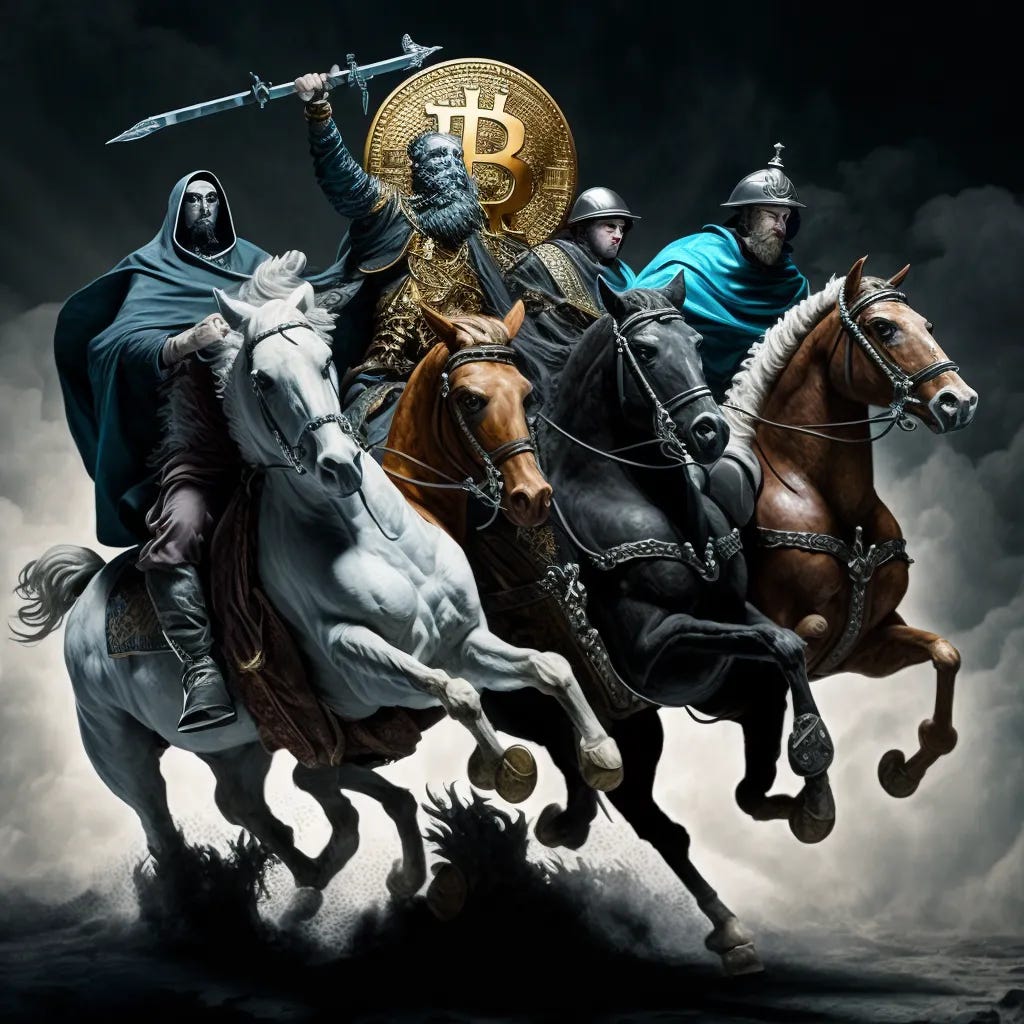
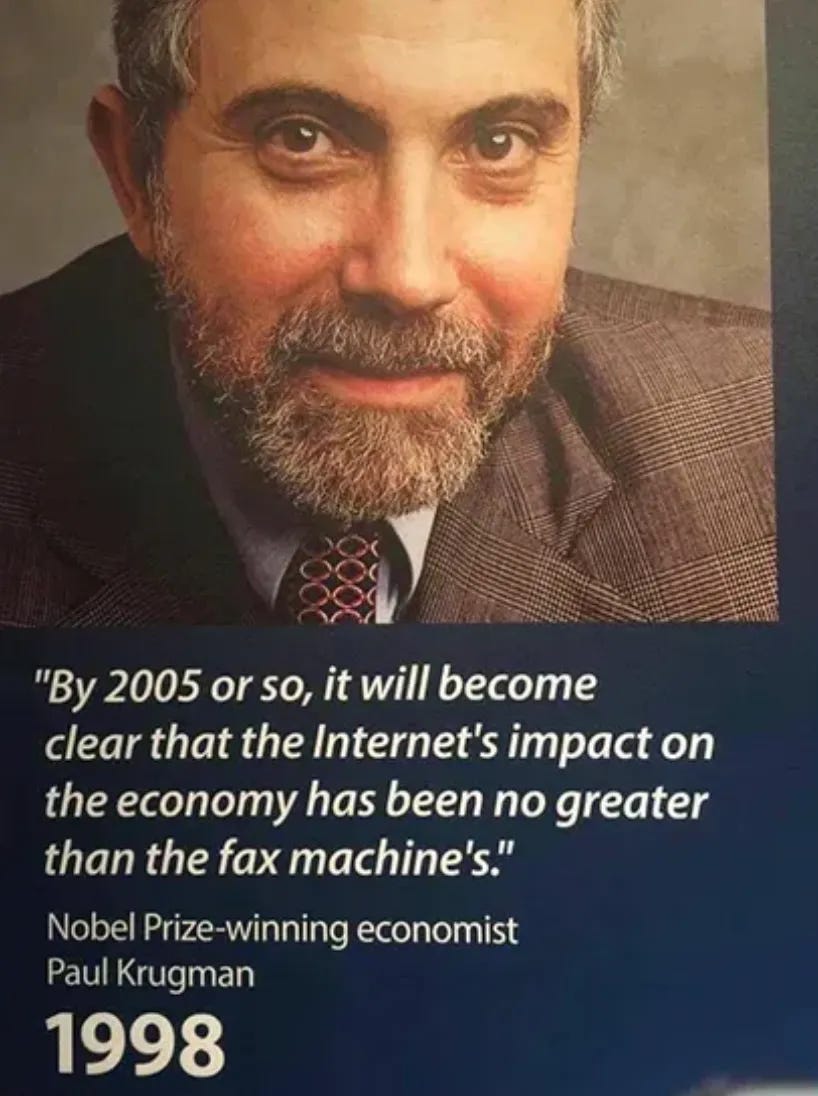
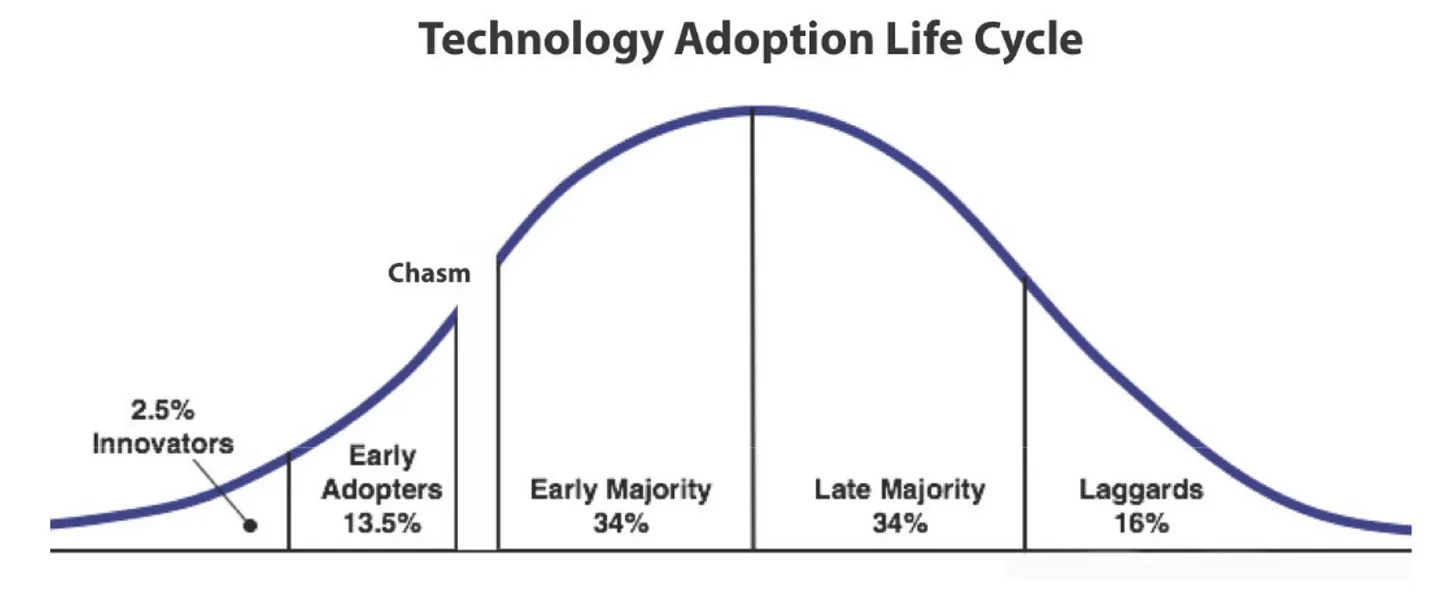
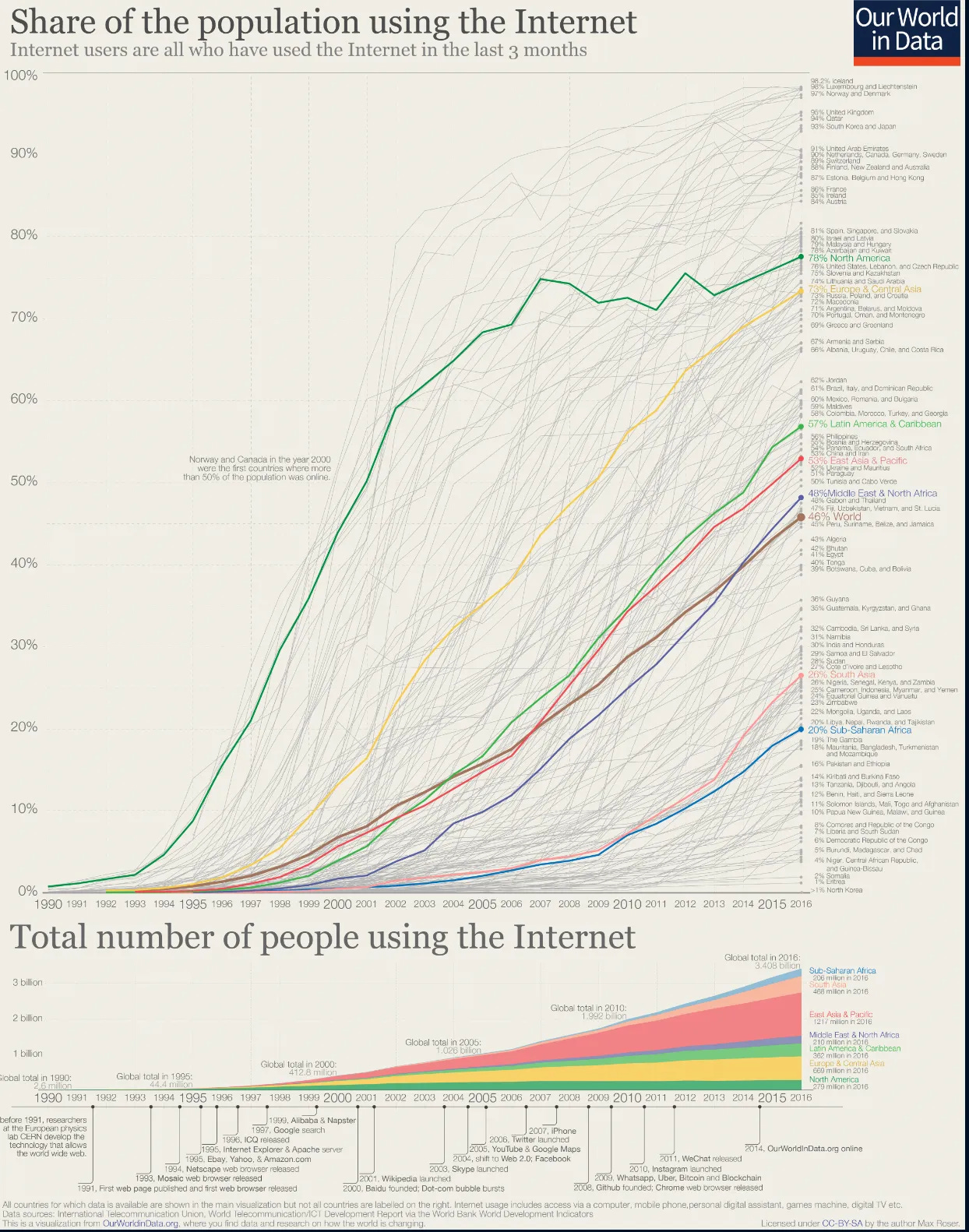

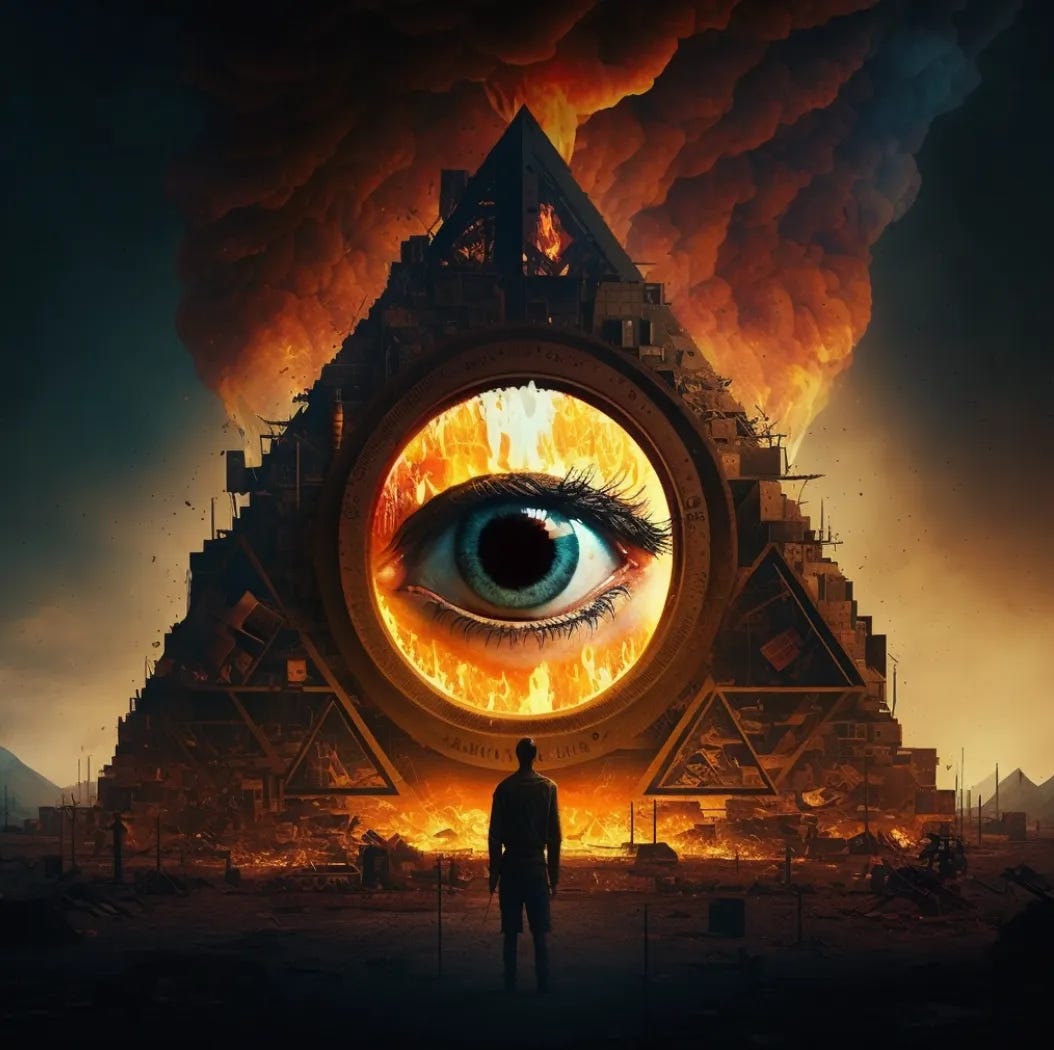
This energized me. Thank you!